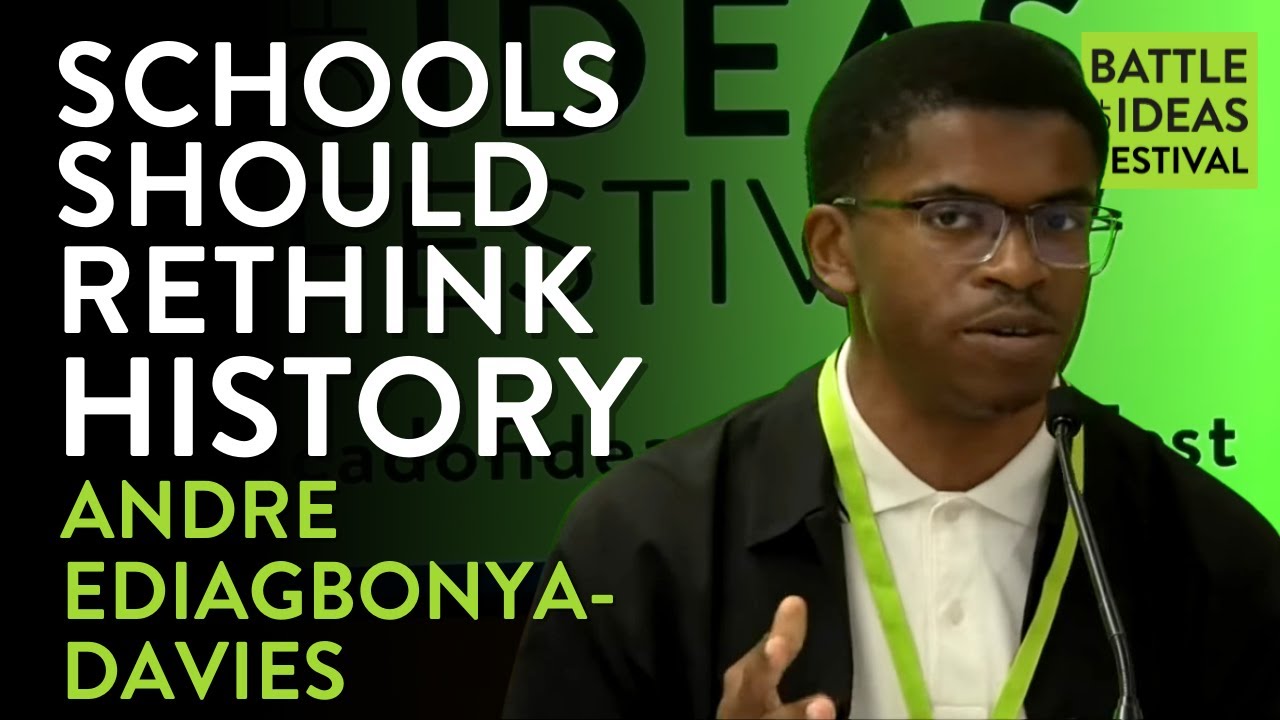In his talk, Andre Ediagbonya-Davies advocates for decolonizing the British curriculum to provide a more inclusive and accurate understanding of history, which is essential for fostering critical thinking and empathy among students. He emphasizes that a diverse curriculum allows all students to engage with various perspectives, preparing them to navigate contemporary issues related to race, identity, and inequality without promoting a singular, potentially alienating definition of patriotism.
In his talk, Andre Ediagbonya-Davies addresses the urgent need for decolonizing the British curriculum, particularly in light of recent societal tensions and events that highlight a growing divide in national identity and patriotism. He argues that the actions of a minority, such as vandalism and protests against asylum seekers, do not reflect the majority’s views on patriotism. Instead, these incidents reveal a deeper discontent with an isolationist narrative that is often reinforced by the current educational framework. Ediagbonya-Davies believes that a decolonized curriculum is essential for providing a more accurate and inclusive understanding of history, which is crucial for equipping students with the critical thinking skills necessary to navigate the complexities of the modern world.
Ediagbonya-Davies emphasizes that decolonization does not equate to a rejection of patriotism; rather, it allows students to form their own understanding of national identity. As a second-generation immigrant with Nigerian heritage, he shares his personal journey of recognizing the importance of acknowledging diverse histories and cultures. He argues that understanding Britain’s past requires a multifaceted approach that includes perspectives beyond the Eurocentric narratives traditionally taught in schools. This shift is vital for breaking free from a collective amnesia regarding the country’s colonial history and its implications.
The speaker critiques the notion of a patriotic curriculum, suggesting that it risks becoming a tool for social engineering rather than genuine education. He points out that the country is divided on what patriotism means, and enforcing a singular definition in schools could alienate students and undermine educational principles. Instead, he advocates for a curriculum that includes a variety of perspectives, allowing all students, regardless of their background, to engage with a broader understanding of history. This approach fosters empathy and prepares students to address contemporary issues related to race, identity, and inequality.
Ediagbonya-Davies also addresses the misconception that students of color should only see themselves represented in the curriculum. He argues that education should transcend individual identities and promote self-development for all students. He highlights the importance of exposing predominantly white students to diverse histories, particularly in areas where they may not encounter such perspectives in their daily lives. By doing so, students can better understand the interconnectedness of the world and engage meaningfully with ideas beyond their immediate experiences.
In conclusion, Ediagbonya-Davies calls for a reevaluation of how history is taught in schools, emphasizing that this is not about assigning blame or guilt but about fostering critical evaluation and understanding. He believes that a well-rounded education should prepare students to engage with complex societal issues and that dismissing discussions around race and identity only perpetuates systemic negligence. By embracing a more inclusive curriculum, educators can help students navigate the complexities of their world and contribute to a more empathetic and informed society.
